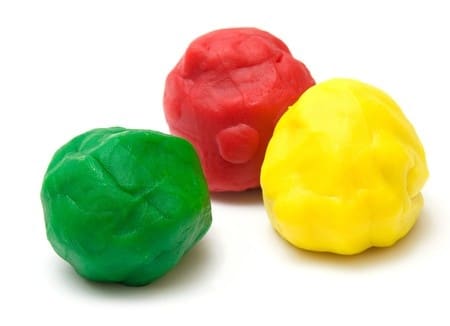Creating associations between activities is something us humans are good at and lies behind habit formation. Breaking those associations is often more challenging and habits can become so deeply ingrained that they override our real needs. When we become aware of a habit that we can’t seem to break it becomes a problem, but habit formation is what the brain is designed to do and there are ways we can use this knowledge to wean ourselves off those annoying
What’s going on in the brain?
If we could look inside of our brains when indulging in a habit – say grabbing some biscuits to go with a morning cuppa – we would see our behaviour reflected in the flow of chemicals (called neurotransmitters) which travel between nerve cells (neurons). Our brains contain billions of such cells with each one capable of making tens of thousands of connections with their neighbours. The more we repeat a behaviour, the stronger these connections become so that, over time it becomes easier to trigger the behaviour and that much harder to avoid it. The sound of the boiling kettle, the sight of your favourite mug and the smell of coffee brewing will all contribute to the activation of the biscuit habit in a process called ‘mutual reinforcement’.
Habits in our relationships
Of course, apart from depleting the biscuit supplies, the example above is a habit which affects us individually. However, habits are also formed in the way we relate to one another. Perhaps we have a habit of ignoring our emotions until we feel so frustrated we blow up. In turn, our partner habitually reacts by shutting down and ‘sulking’. This dynamic continues over time and becomes ingrained until one or either of the parties decide to change things – or at least to try. Otherwise we remain stuck in a dysfunctional dance where everybody’s habits are affecting everybody else’s and nobody is behaving in the way they truly want to be. A miserable state of affairs!
The higher brain and neuroplasticity
Fortunately there are two weapons we already have at our disposal. The first is a part of the brain, the prefrontal cortex (sometimes referred to as the ‘higher brain’) which is able to disconnect itself, to a degree, from our more automatic functions and decide which habits to accept and which ones to change.
Then there is neuroplasticity, the ability of the brain to change its structure. Although this ability is most evident in children, recent studies have shown that the adult brain can not only change, it can also influence the switching on or off of certain genes (epigenesis). The first step in changing habits is to use our brain’s innate habit-forming abilities to replace current unwanted habits with others that resonate with our life’s goals. This process is not always easy; the previous connections need to gradually die out over time as the new ones are gradually established, but with commitment, and a bit of support where needed, it can be done.
Choosing help
One of the first habits that might need shifting is the compulsion to sort out our own problems rather than to admit we need help. This is a healthy attitude when we are in a good place and largely in control of our mental health. But if we have tried and tried again to ‘self-help’ with little or no progress it is probably time to seek out an appropriately qualified therapist to help you to become unstuck.
Habits and narcissism
As I reveal in my book on Narcissistic Personality Disorder and Codependency (Learning How To Leave), there is sometimes no option but to remove oneself from an unhealthy relationship before we can hope to heal. When we have grown up habitually needing to seek approval from others for our own self-esteem we are in danger of becoming a victim in a relationship with a narcissist. If you find yourself being ground down, humiliated or otherwise abused by someone in your life – or you know somebody in that situation – external help is definitely needed.
Image Copyright: / 123RF Stock Photo

